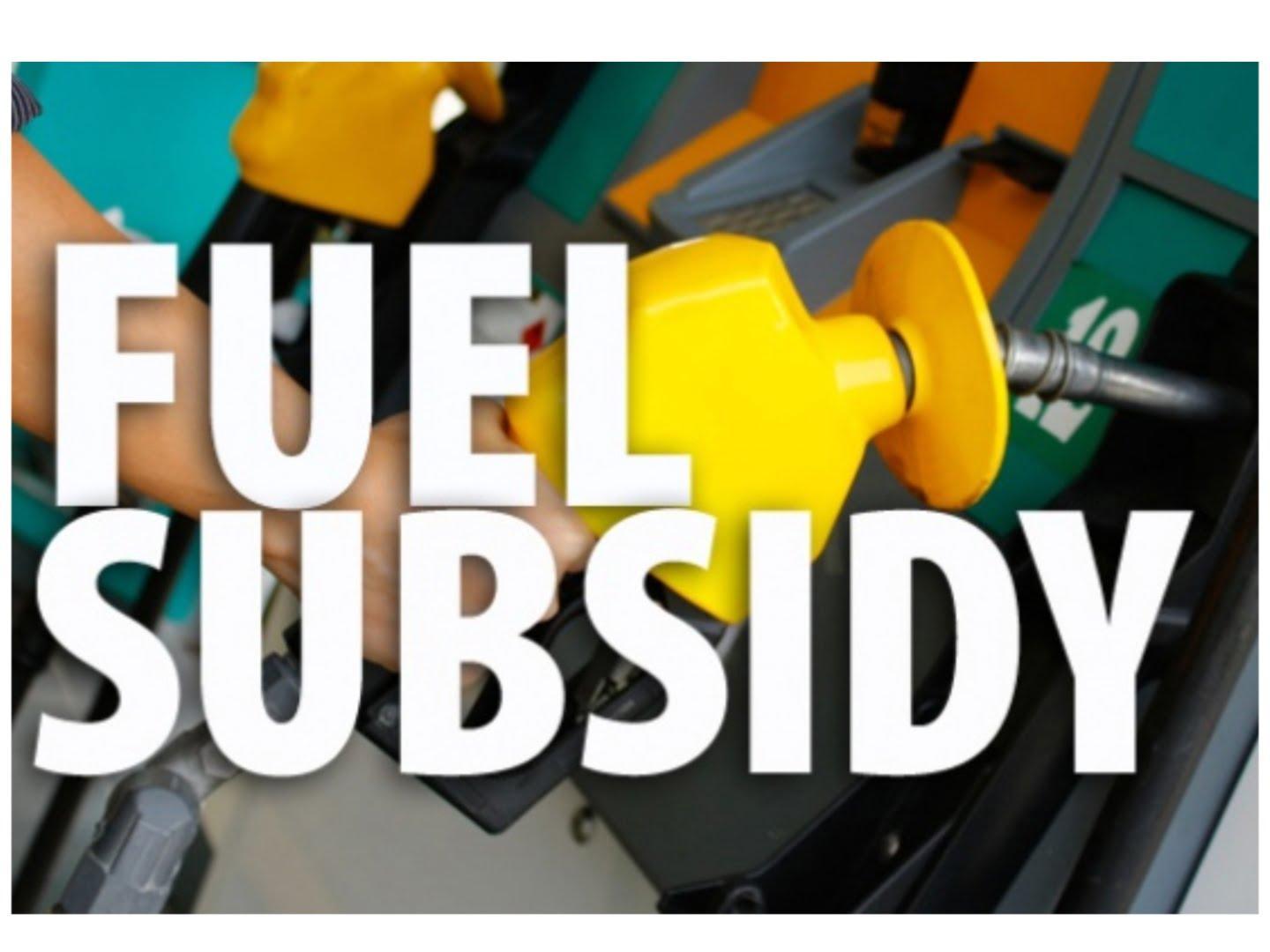Africa-Press – Nigeria. The recent removal of fuel subsidy and subsequent price hike has sparked concerns among various segments of the society.
One particularly affected group is the Small and Medium Enterprises, SMEs, which plays a vital role in the country’s economy.
SMEs form the backbone of Nigeria’s economy, contributing to employment generation, economic diversification, and poverty reduction.
They often operate on tight budgets and are highly sensitive to changes in the cost of doing business.
The removal of fuel subsidy has led to an immediate and noticeable increase in operational costs for the SMEs, impacting their ability to remain in business.
One of the most obvious effects of the fuel subsidy removal and price hike is the rise in transportation costs.
SMEs heavily rely on transportation services to move goods and services, both for procurement and distribution.
With increased fuel prices, transportation costs have surged, resulting in higher expenses for businesses.
This burden is often transferred to the consumers through increased prices of goods and services, further affecting their purchasing power.
Additionally, many SMEs rely on generators to sustain their operations due to the unreliable power supply in the country. The increase in fuel prices directly affects the cost of running these generators, leading to higher overheads for businesses.
For SMEs already struggling to meet operational costs, this added financial strain can be detrimental to their survival and growth.
Another significant impact of the fuel subsidy removal and price hike is the potential decrease in consumer demand.
As the cost of fuel rises, individuals have less disposable income to spend on non-essential items. This reduction in consumer purchasing power directly affects SMEs, especially those in the retail and service sectors, as customers cut back on their expenses.
The decline in demand can result in reduced sales and revenue for these businesses, making it even more challenging for them to cover operational costs.
Furthermore, the increased cost of production caused by higher fuel prices can hinder SMEs ability to expand and invest in innovation.
For barbers, hair stylists, and salon owners, the rise in fuel cost poses a significant setback. Many of these businesses rely on generators to power their equipment and provide lighting during power outages.
With the increased price of fuel, the cost of operating these generators has surged, eating into already narrow profit margins. This has forced some businesses to pass on these additional costs to their customers through higher service charges, potentially impacting customer loyalty and demand.
Welders and metal fabricators, whose operations often involve the use of generators and heavy machinery, face similar challenges.
The increased cost of fuel has led to higher overheads, making it more difficult for them to competitively price their services. This, in turn, can hinder their ability to secure contracts and maintain a steady flow of income.
Printers, another group significantly affected by fuel price hikes, rely heavily on generators to power their printing presses and equipment.
The increased fuel costs have directly impacted their production costs, forcing them to reevaluate their pricing structures. The effects can be felt by their customers as well, as printing services may become more expensive, potentially impacting businesses that rely on printed materials for marketing and communication purposes.
Beer parlour owners and cold room operators, who heavily rely on refrigeration and cooling systems to preserve perishable goods, are grappling with the consequences of increased fuel costs.
The rise in fuel prices translates to higher electricity costs, as many of these businesses rely on generators to supplement the unreliable power supply. This creates a dilemma for owners who must balance the need to maintain the quality of their products while managing the increased cost of production.
Commercial motorcyclists, commonly referred to as “Okada” riders, have also been significantly affected by the fuel subsidy removal and price hike.
These riders heavily depend on fuel for their daily operations, transporting passengers and goods. With fuel price on the rise, their operating costs have increased, cutting into their earnings and potentially affecting their livelihoods.
A barber operating in the Utako area of Abuja, Anas, lamented that it was seriously affecting small business owners.
Anas said the Federal Government should have put measures in place to cushion the effect of subsidy removal before making the declaration.
Anas told DAILY POST: “This fuel subsidy removal is seriously affecting those of us doing small businesses; we can’t work without light and transportation has become an issue. The place you go for N200 before has become N400. If this subsidy removal is allowed to continue, I don’t think small businesses will survive in Nigeria.
“Running businesses in Nigeria is expensive now, and with this policy, I don’t think they would survive.
“I will appeal to the Federal Government to find a solution to the fuel crisis because that is the only way to help the poor masses. The federal government should have put in place the necessary things before making such a declaration.
“This is a very good idea, but we have not reached that level. For me, if the Federal government can make the price of fuel N300, it is okay, N500 is too much. My heart goes out to civil servants at this point in time. Most of the money people are making now goes for transportation.”
In Kogi State, traders also lamented the removal of fuel subsidy by the Federal Government.
Some traders in Lokoja fumed at the policy of the government, which has brought untold hardship on the masses.
Christian Oyibo, a food vendor at the Nigeria Union of Journalists, NUJ, Secretariat in Lokoja, said her business had witnessed low patronage since the removal of fuel subsidy.
According to her, the prices of foodstuffs, including transportation, have increased, adding that she had been recording losses in her business.
Oyibo said: “The fuel subsidy removal has caused more harm than good in our business. The prices of foodstuffs have all jacked up in the market, including transportation.
“Our customers think that our price should remain the same, which is not possible. This has made our business gain low patronage. I am calling on the government to do the needful to alleviate the suffering of the masses.”
In the same vein, Shehu Ibrahim, a petty trader in Alieri junction Lokoja told DAILY POST that the decision of the Federal Government to remove fuel subsidy without considering the implications on the masses was condemnable.
“We are just coming out of the cash crunch quagmire. Now, it is fuel subsidy. Is it that our leaders don’t think or they don’t have sensible people to advise them?
“How will you remove fuel subsidy in your inaugural speech as President of Nigeria? We can’t continue to fold our arms and allow all these wicked people continue to inflict pains on us who voted them into power,” he stated.
On his part, a bear parlour owner, Friday Steven Adams berated the Nigeria Labour Congress, NLC, for suspending their proposed strike.
According to him, with the recent development, the current price of fuel has come to stay in Nigeria.
“Nigeria is a country where everything goes. Our business is declining as our customers complain about the current hardship. Look at me now, I used to sell at least 20 crates of beer a day.
“That was when business was booming. But now, it is hard to sell five crates. Where is this country heading to? The price of beer is almost double the former price. Instead of customers patronising us, they would rather channel their money to other things.”
DAILY POST correspondent who visited old and new markets in Lokoja on Tuesday morning observed a 200 percent increase in the prices of goods and services.
Speaking with our correspondent from Makurdi, the Benue State capital, a tailor, who identified himself as Zubairu decried the high price of fuel occasioned by subsidy removal.
Zubairu lamented that the policy of the Federal Government was affecting his business because he needs electricity to work.
“The cost of fuel is alarming right now, and it’s affecting my business.
“We are buying one litre of fuel here in Makurdi between the rate of N550 and N600, so If I charge my customers more they will start lamenting.
“This whole thing is affecting me. I will appeal to the government to resolve this issue so that it will have less effect on us the masses,” he said.
For More News And Analysis About Nigeria Follow Africa-Press







